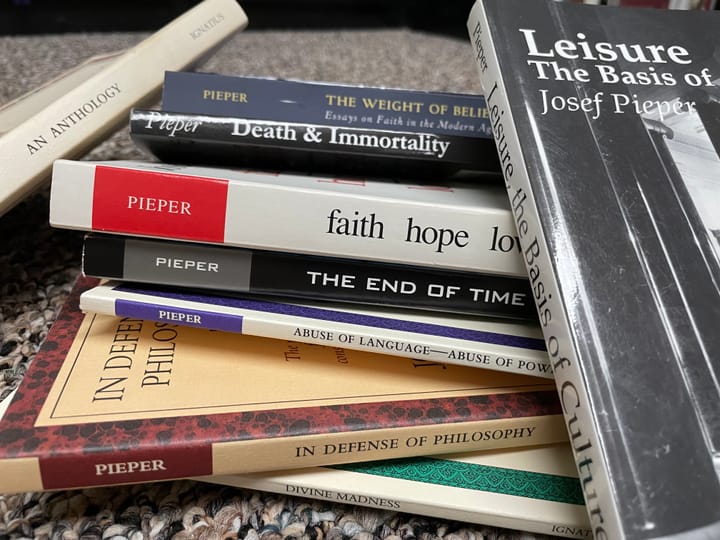The Demolition of the Western Mind
Louis Markos at The Imaginative Conservative

[The] same sense of liberation I had felt reading The Screwtape Letters I felt again and again as I worked my way through Anthony Esolen’s Sex and the Unreal City: The Demolition of the Western Mind. With equal doses of logic and wit, Dr. Esolen, a literature professor, translator, and poet who holds the position of writer in residence at Magdalen College of the Liberal Arts in New Hampshire, skewers modern and postmodern pretensions, showing them to be based, not on reason or logic or even common sense, but on lies, delusions, and an embrace of unreality.
Secular liberal political and educational leaders do not acquire their power by proving their points logically. Rather, like advertisers, they gain and hold power “by keeping people in a continual state of fear, hatred, resentment, or vindictiveness” (19). They invite us to join them in their delusions and to live in the Unreal City that they have built. And they do this, in great part, by forcing reality to bend to their manipulation of language.
How are they able to accomplish this? Because they know that we “want to believe that our words can alter reality: we want to believe that we can, by linguistic magic, negate the Word through whom all things were made, and the things themselves” (40). By alluding to the Prologue of John’s Gospel (1:1-18), Dr. Esolen makes clear that their attack on the real meaning of words is also, and ultimately, an attack on that God who is the Logos: a Greek word that not only means “word,” but “logic” and “reason” as well.
“Adam names the beasts and in naming them seeks to dis-cover, to un-veil, some real feature of their being” (53). Not so the radical architects and even more radical heirs of the sexual revolution. The transgender movement, Dr. Esolen explains, “depends for its existence upon the supposition that realities depend upon words, so that whoever controls the language controls the universe. It is as if we could say ‘same-sex marriage’, and hey presto, there would be such a thing, or as if a man could declare himself to be a woman, and so it is” (54). This is not the true magic of the Incarnation (the Word made flesh), but the deceptive voodoo of secular shamans who would vivisect rationality itself.
Although I am an evangelical, most of my favorite conservative cultural critics (Joseph Pearce, Peter Kreeft, Thomas Howard, Holly Ordway, Dwight Longenecker, and the late Richard John Neuhaus, not to mention Chesterton and Cardinal Newman), are Catholic converts. As a cradle Catholic, Dr. Esolen brings with him a deep sense of the rootedness of the Catholic tradition and how vital communities are to the proper formation and expression of our humanity. The importance of that rootedness reverberates through every page of Sex and the Unreal City.
Only someone with Dr. Esolen’s firm faith in and experience of our essentially communal humanity—which he positions between the radical individualism of the extreme right and the anti-humanistic collectivism of the left—could offer the following much needed critique and deflation of the fashionable political philosopher John Rawls.
He asks us—nay, he demands it of us, under pain of banishment from civic discourse—that we pretend that we are not sons and daughters, fathers and mothers, husbands and wives, neighbors and members of a community, in this place and not another, worshiping God in this church and in these ways, and devoted to a certain vision of the good, a vision that we do not deduce from abstract principles but either see intuitively or experience in the blood. He requires us, in short, not to be human at all, and only then, or only insofar as we can adopt the pose of the bloodless and desiccated, may we come together to form a contract, a profoundly antisocial contract, dictating civil rights, punishments, rewards, and so forth. (118)
The insights in this paragraph alone make Dr. Esolen’s book worth reading, but he carries his dismantling of the Unreal City even further, to offer both a spiritual analysis and a spiritual solution. Materialism, he argues, is a bankrupt worldview that kills wonder, gratitude, and friendship, reducing man to a handful of mud that can be shaped and reshaped at will by the autonomous individual or the amorphous state. The materialist may claim to be guided by goodness or justice or duty, but his system cannot provide a foundation for any of those things.



